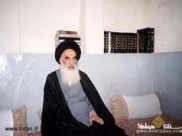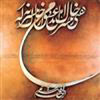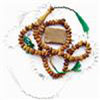





English
Paying reparation for children beaten by parents and pupils beaten by teachers/the Grand Ayatollah Sistani’s Fatwa

Miscellaneous

Is the time of reappearance of Imam Mahdi (may Allah hasten his reappearance) known?

Which has more reward, reciting the Quran from a hard copy of the Quran, or reading it on a computer screen or on a mobile screen?

The second chain of transmission of the narration, “wa sunnatī” [and my tradition]
![The second chain of transmission of the narration, “wa sunnatī” [and my tradition] The second chain of transmission of the narration, “wa sunnatī” [and my tradition]](https://erfan.ir/system/assets/imgs/NoImage.png)
Is it a sin not to take part in mourning ceremonies for Imam Hussain (AS)? The Grand Ayatollah Shobairi’s answer

The Grand Ayatollah Shobairi Zanjani answered a question about not taking part in mourning ceremonies for Imam Hussain (AS).
Question: Is it Wajib to take part in mourning ceremonies for Imam Hussain (AS)? If a person does not take part in these ceremonies, is he/she committing sin?
The Grand Ayatollah Shobairi: If not taking part in these ceremonies is denial of mourning, it is not allowed.
What is the occasion of the revelation of Surah al-Nahl? What is meant by "Allah's commandment has come, therefore do not desire to hasten it?"

Questions Relating to Ashura/Karbala (1)

Is seeking help from someone other than God regarded as a kind of polytheism [shirk]?
![Is seeking help from someone other than God regarded as a kind of polytheism [shirk]? Is seeking help from someone other than God regarded as a kind of polytheism [shirk]?](/cache/imgs/b4beeab42f7603ab5cc9443b8011828a.jpg)
Historical Factors and Shi’ism

Tirmidhī narrates this ḥadīth, too and says: ‘It is an authentic [ṣaḥīḥ] and sound [ḥasan] ḥadīth’, and the commentator of this ḥadīth says in the book, Riyāḍ aṣ-Ṣāliḥīn:
![Tirmidhī narrates this ḥadīth, too and says: ‘It is an authentic [ṣaḥīḥ] and sound [ḥasan] ḥadīth’, and the commentator of this ḥadīth says in the book, Riyāḍ aṣ-Ṣāliḥīn: Tirmidhī narrates this ḥadīth, too and says: ‘It is an authentic [ṣaḥīḥ] and sound [ḥasan] ḥadīth’, and the commentator of this ḥadīth says in the book, Riyāḍ aṣ-Ṣāliḥīn:](https://erfan.ir/system/assets/imgs/NoImage.png)
In what conditions watching comedy programmes allowed? The Grand Ayatollah Khamenei’s answer

The Grand Ayatollah Khamenei answered a question about watching or listening to comedy programmes.
Question: Is watching or listening to comedy programmes in television and radio allowed?
The Grand Ayatollah Khamenei: There is no problem in listening or watching comedy programmes unless they involve in insulting a believer.
Is the tradition mentioned in Shia books about Imam Hasan (AS) and Imam Hussain (AS) praying behind Marwan bin Hakam reliable?

Where and when did mourning for Imam Hussein (A.S.) start first?

Is the narration concerning the manners of standing, ruku and sujud during prayers authentic?

The first sign of the Imamate

Keeping alive the remembrance of the Imam (pbuh)

How old was Imam Ali (AS) on the day of Ghadir?

Main Ethical Questions In Islam
